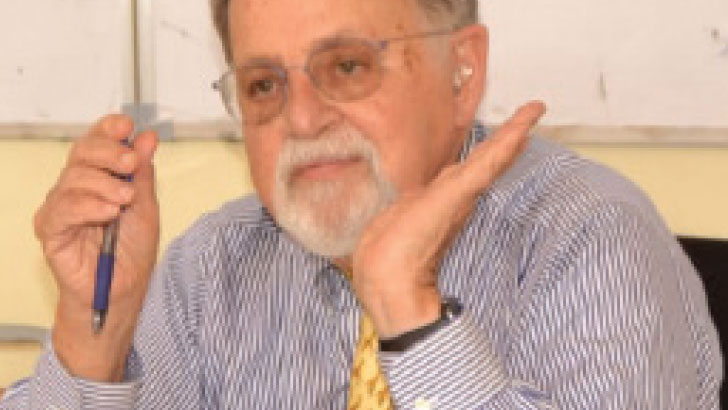Global scientist suggests alternative to subsidy
Pedro Sanchez, a professor of tropical soils at the University of Florida, United States of America, has advised Malawi to consider adopting the use of microbial biomass as an alternative to agriculture subsidies.
Soil microbial biomass is a small but dynamic fraction of soil organic matter which is an agent of change in soil responsible for most of the soil transformations.

It helps decompose plant and animal residues and soil organic matter to release carbon dioxide and implant available nutrients.
On Wednesday, Sanchez held a public lecture on soil health and alternatives to subsidies at the Lilongwe University of Agriculture and Natural Resources (Luanar) where he repeatedly emphasized that microbial biomass is a good alternative to subsidies.
“It is not our principal task to recommend government to abolish or maintain the [subsidy] policy and we cannot completely scoff at the policy as there is a lot that the programme has done. Our big concern, however, is that government is not supporting the microbial biomass which is a critical programme to replenish nutrients in the soil.
“But again its worthy zero if the farmers don’t use the knowledge from extension programmes in universities that is why there has to be so much emphasis on extension for the knowledge to trickle down to the farmers,” he said.
Under the Tonse Alliance administration, government is implementing the Affordable Inputs Programme (AIP) which replaced the Farm Input Subsidy Programme.
However, many agriculture experts have criticised the programme, describing it as consumptive in nature and not an investment initiative.
Critics have also faulted Capital Hill for allocating a huge chunk from the agriculture budget to the subsidy programme at the expense of other high- impact areas within the agriculture sector such as extension, research and development as well as livestock and fisheries.
In the 2021/22 National Budget, out of K284 billion agriculture budget, government allocated K142 billion towards AIP, representing a 50 percent allocation to the subsidy programme.
Sanchez further advised Capital Hill to do more in promoting economic growth of the country by enhancing agriculture production. He also implored government to increase attention to agriculture extension as a way of building evidence-based policy.
While admitting that there has been “agriculture policy erosion” in the country, both Sanchez and Luanar vice-chancellor Agness Mangwela said the AIP is not necessarily a bad policy, stressing that it has helped a lot in ensuring that the country is food secure.
However, the two called for a sustainable policy alternative.
On his part, Professor Richard Mkandawire of Mwapata Policy Institute, who is also National Planning Commission board chairperson, commended Sanchez for the insightful policy advice to the Malawi government. He described the advice as key and worth considering for policy analysis.
He promised to take the issues to the government for consideration.
During the debate most Luanar students observed that the subsidy issue has been debated and discussed for long and documents have been written about it but that there is lack of political will to transform the programme.
Intensive agriculture activities of smallholder farming systems are said to be behind the declining soil nutrients status.





